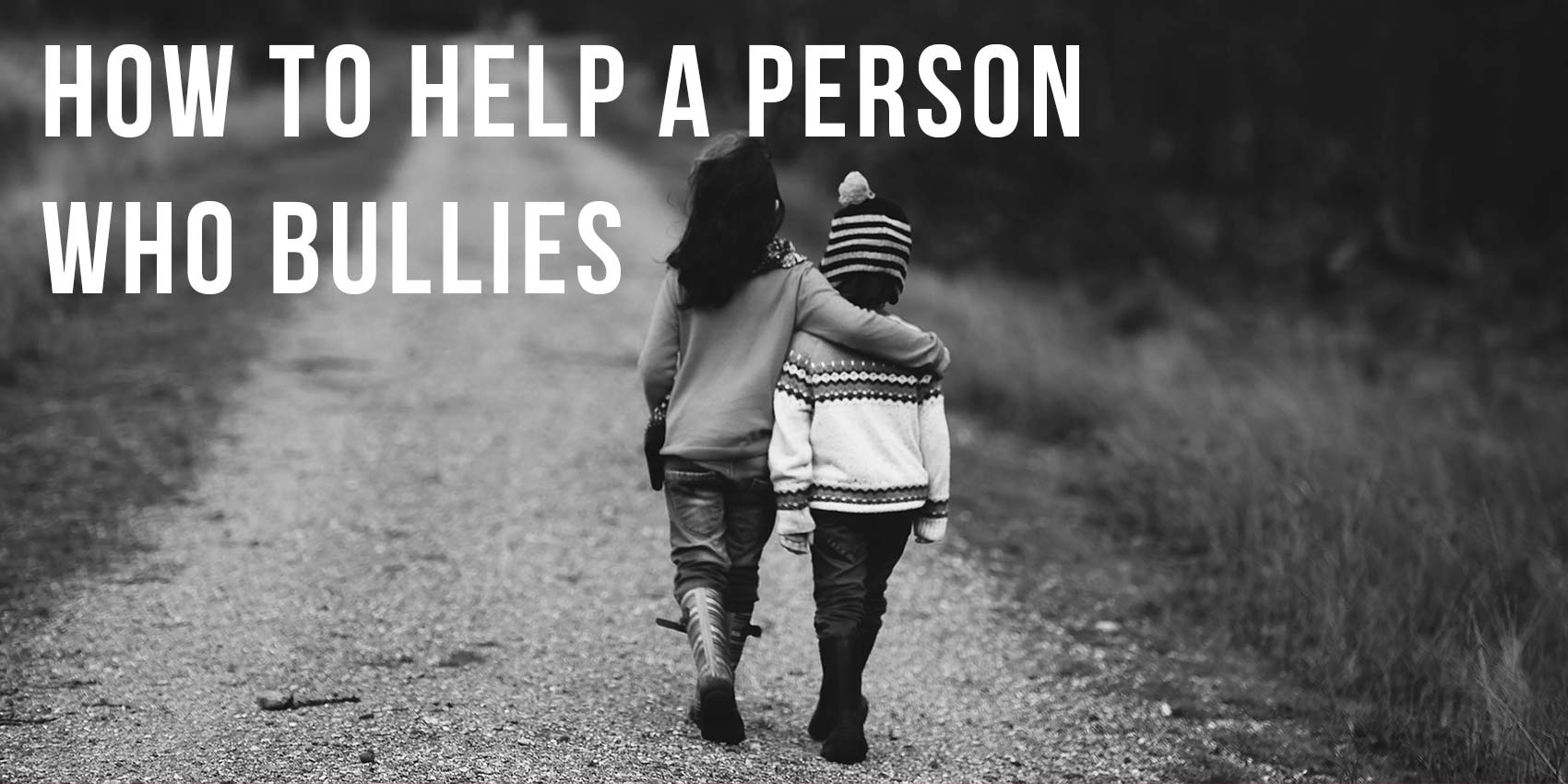13 Sep How to help a person who bullies

When you see a “not-so-popular” person trip, or come out of the bathroom with toilet paper on his heel, or how about a huge booger on her nose, do you say something to help the person out or do you point and laugh?
A person with empathy feels the pain that the impending embarrassment would cause and likely will say something polite like, “Are you okay? I totally tripped the other day myself. No big deal.” Or, “Oops, looks like you dragged out a bit more than you intended,” and point to his shoe with a smile. Or, “Um, hate to say this but you have something on your nose you might want to take care of.”
A person with empathy will act in a manner that helps the person, not hurts the person. A person without empathy will likely capitalize on the situation and make fun of the person with toilet paper on her shoes in an attempt to elevate his own social status or to make himself feel more powerful.
We all have the capacity for empathy, we are born with it, but it needs to be cultivated (meaning developed). A person who bullies lacks this trait. A person who bullies may have been raised in a manner that did not activate the natural empathy wiring in the brain. Though many reasons exist for why someone may be hurting, relationships throughout the “bully’s” life were likely poor, unpredictable, nonexistent or harmful. As such, he likely has difficulty with healthy relationships while his natural capacity for empathy may have been sidetracked.
So how can you help? You are certainly not meant to rescue a person who bullies, but the more we try to encourage the following characteristics in everyone, the better off we will all be!
Increase empathy: Constantly ask the person doing the bullying, “How would you feel if someone did that to you?” Try to squeeze out every drop of emotion possible. How would the person feel? You are looking for a feeling as part of the response, not a defensive reaction.
Increase emotional awareness: This is similar to creating empathy – since empathy is an emotion – but many more emotions exist. The more we can become aware of our emotions and then find ways to manage them constructively, the less likely we are to act them out destructively. So if a person who bullies threatens you physically, then you know they are really angry. The anger may or may not be about you, but it’s directed at you and if the threat seems real, you need to get out of there, calmly.
However, if a person who bullies is saying things like, “Man, you are so ugly it hurts to look at you,” and you don’t feel threatened by that, then you can read it for what it appears to be, a pathetic attempt to gain the upper hand (the power). Once you realize the emotion behind the threat is pretty weak, you can address it, by saying something like, “Wow, you seem really pissed off at me. I’m sorry you feel that way because there’s nothing I can do about my face.” The point is, take a moment to reflect back to the person his or her emotions. Not that this is your job, by any means, but by doing so, you are disarming them. You take the topic they raised (an insult to you) and you make it more about them, but in a truthful way (“you seem really pissed off”). By doing this, you’ll help them become more aware of their emotions, you’ll deflect the mean comment and you’ll show the bully that you’re not really interested in what they have to say about you or your face.
Increase frustration tolerance: How much can you take before you snap? Did you know that some people can’t even take a minor joke? Those people have a very low level of frustration tolerance – a low ability to manage frustrations. The ability to manage difficult emotions like anger and rage can lead to a make-it or break-it lifestyle. In other words, people can turn to destructive behaviors, break the law, use drugs, drink alcohol to excess or get into fights, to name a few. Or people can take their frustrations out on other people.
How about you? For example, do you have a younger sibling who drives you crazy? What do you do about it? After all, the kid is younger and is looking to you for guidance and support. Do you model control of your emotions or do you blow up at him/her? If you tend to flip your lid, you may want to work on some strategies for increasing your frustration tolerance (because siblings can be really really frustrating!) So, take a deep breath and try to deal. Sound complicated? Click here for some anti-stress strategies. and click here to read about anger management.




WLKHS 1409
Posted at 14:49h, 13 DecemberTry to make the bully understand what he really is doing to the people he bullies, also to help the bully see the perspective of people whom he bullies.
WLKHS1207
Posted at 03:17h, 12 NovemberThe best way to deal with a bully is to “disarm” them by showing them that you are disinterested in their threats or insults and telling them how they feel to make them think about what they said. The best way to help a bully is to show empathy for them and make them feel empathy for others.